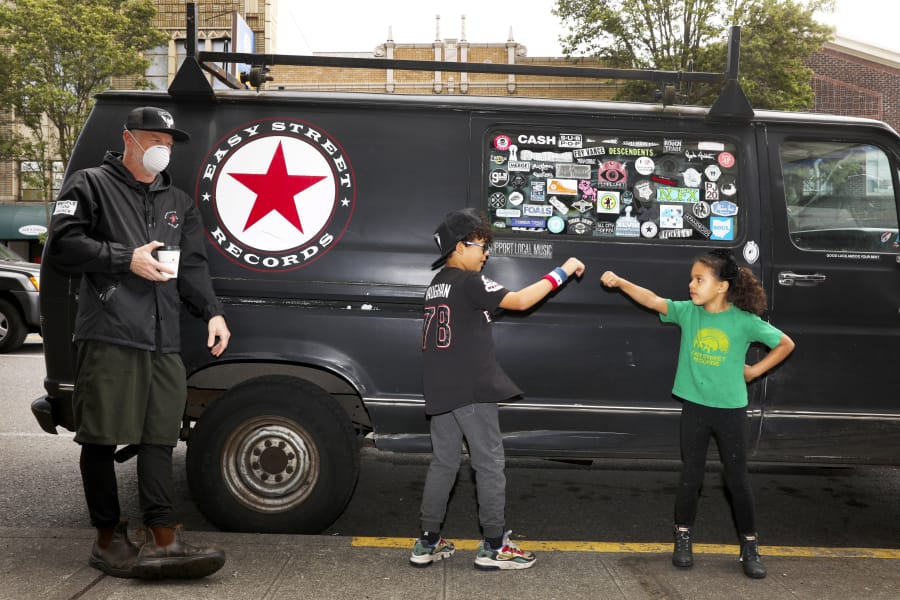SEATTLE — It’s impossible to know how many miles are on the Easy Street Records van. The odometer on the 1990 Ford Econoline has turned over more times than your favorite Pearl Jam record.
Based on Seattle music lore, the old plumber’s van that Easy Street boss Matt Vaughan purchased when he opened a since-shuttered location has as many stories as a Rolling Stones roadie. Friend of the shop Eddie Vedder has driven it around after events at the store. Blues-rock hooligan Reignwolf mounted the van for a set in the middle of the field during the Sasquatch! Music Festival. Macklemore “climbed all over it” the day he and Ryan Lewis commemorated the release of their career-defining album “The Heist” with a performance on the since-shuttered store’s roof, Vaughan said.
And like the immortal Keith Richards, the sticker-splattered rockmobile is still ticking. With the help of some “bro deals” cut with the musichead mechanics Vaughan knows down the street, the Easy Street van is logging more miles than ever these days. With Washington’s nonessential brick-and-mortar stores closed during the COVID-19 pandemic, Vaughan has been making house calls, personally delivering online and phone orders with contact-free drop-offs in the Seattle area.
“Usually I have my 8-year-old son and my 6-year-old daughter helping me,” Vaughan says, “and we’re running ’em out like we’re dropping off the newspaper.”



